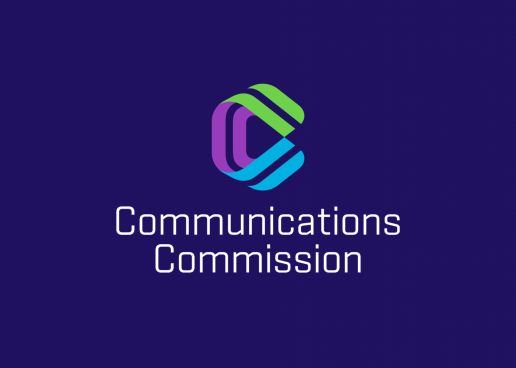ComCom issues violation protocols to 4 channels but appeals to the court to free the broadcasters from liability

The Communications Commission upheld the complaint lodged by the political union Georgian Dream – Democratic Georgia against the Georgian Public Broadcaster, Mtavari Arkhi, TV Pirveli and Formula. The Commission issued violation protocols to the TV companies but appealed to the court to free the broadcasters from liability. Based on the precedents of the case, the Commission has recommended not to fine the broadcasters.
The case concerns the complaint lodged by Georgian Dream – Democratic Georgia, according to which an electoral subject may not use its own airtime to place an advert in favour of another electoral subject. The complaint states that European Georgia and Yes to Europe openly announced their intention to join Unity – National Movement for the 2024 elections. Furthermore, the political union Citizens is united with Lelo. According to the complaint, European Georgia, Yes to Europe and Citizens are placing free political adverts on Mtavari Arkhi, TV Pirveli, Formula and the Georgian Public Broadcaster. In addition, Unity – National Movement and Lelo are independently placing political advertising on the same channels.
The complaint also talks about the allocation of free advertising time to the parties included in the bloc, and notes that Mtavari Arkhi and TV Pirveli have afforded the political union Unity - National Movement and New Unity – Gvaramia Melia more free advertising time than they are due according to the Election Code.
At today’s meeting, the Communications Commission noted that according to the Election Code of Georgia, an electoral subject is not allowed to use its allocated advertising time to place an advert that serves the campaigning goals of another electoral subject. The electoral subjects European Georgia, Yes to Europe and Citizens named in the complaint have publicly stated that they are not participating in the elections independently, and that their leaders intend to join forces with other electoral subjects. In addition, the said parties are not conducting pre-election campaigns to facilitate their own election. The video clip submitted by them is directed against one specific subject. The placement of a video clip directed against an electoral subject is included in the campaigning goals of the subject that is conducting its own campaign. When a subject does not conduct a campaign promoting its own election, its adverts directed against others do not serve its campaigning purposes, but that of other electoral subjects, thereby violating the Georgian legislation.
As for the allocation of free advertising time, the New Unity commercial with a duration of 24 seconds was placed with the Georgian Public Broadcaster. GPB is obliged to set aside 5 minutes every hour for airing pre-election adverts free of charge, and to place pre-election adverts submitted by each authorised party in an equal and non-discriminatory manner every 3 hours. In the given case, GPB divided the time into 7 parts and distributed a fifth of it to the party included in the bloc, which does not constitute a violation.
A 14.8-second advert of New Unity – Gvaramia Melia was aired on Formula, TV Pirveli and Mtavari Arkhi. Additionlly, a 19-second UNM clip was aired on TV Pirveli and Mtavari Arkhi, while a 30-second New Unity advert was aired on Mtavari Arkhi. Since these subjects are entitled to 12.8 seconds of free airtime on national broadcasters, the broadcasters violated the law by airing the aforementioned clips.
According to the information received by the Communications Commission, the broadcasters used the following practice to allocate the free airtime: they divided the mandatory free airtime between the number of subjects that were entitled to free political advertising (in this case, 7 subjects) and distributed it equally among them. Therefore, if only 3 subjects submitted adverts to the broadcaster, there remained a certain amount of free time, which was then distributed equally among the subjects who submitted the adverts (taking into account the upper limit of 90 seconds stipulated by the law). Such a practice existed during the previous elections as well.
The Communications Commission has never had to deal with this issue in the past. Having thoroughly studied the matter at hand, the Commission established that the broadcasters did not allocate the airtime properly. Electoral subjects must be afforded the free advertising time that they are entitled to under the law, regardless of how many subjects submit adverts to the broadcaster or how many subjects are de-registered.
The Communications Commission upheld the complaint of the political union Georgian Dream – Democratic Georgia, issued a violation protocol against the broadcasters, and petitioned the court to free the TV stations from responsibility, since the aforementioned circumstances are new for the broadcasters as well.










